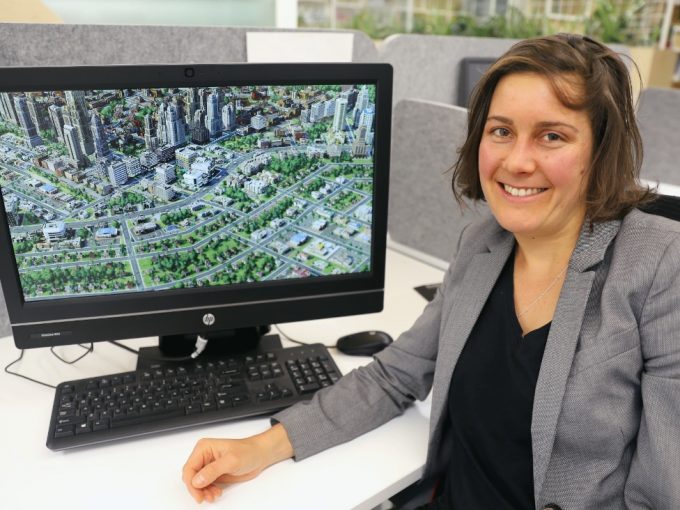An international planning expert has called for academics to engage more deeply with planning practitioners to help improve major urban projects such as Melbourne’s Docklands.

Urban megaprojects like Melbourne’s Docklands have been both praised and criticised.
Dr Stan Majoor, from the Universiteit van Amsterdam, said planning was not “rocket science”, but involved situations where projects were shaped through complex governance.
“I would like to see academics much more eager to take a bold step into that planning world, to observe these practices up-close as ethnographic researchers,” he said.
“From the practitioner’s side, this demands an attitude to not only let academics look into their ‘kitchen’, but to also open up their practices for critical scrutiny.
“I have experimented with such a way of working in the Netherlands and it creates a much deeper understanding of practice.”
Dr Majoor has been in residence at RMIT’s Centre for Urban Research (CUR) since November.
He recently presented a comparative analysis of urban megaprojects at the CUR, focusing on Docklands (Melbourne, Australia), South Axis (Amsterdam, The Netherlands) and Ørestad (Copenhagen, Denmark).
Dr Majoor said urban megaprojects, or extremely large-scale development investment projects, played a prominent role in planning and economic policies in contemporary global cities.
But it is not just the Docklands megaproject that has been heavily criticised internationally – each of the projects he has researched have been both praised and panned.
“Many of these projects are lands of broken dreams,” he said.
“High hopes of vibrant urban places and attractive public spaces with charm and character are hard to realise from the drawing board.”
Megaprojects are often described as having a detached feel, unlike organically grown urban places, and Melbourne’s Docklands was a classic example of this, he said.
Dr Majoor said that by carving the huge area into different precincts, in which the private sector could dominate the outcomes, it was difficult to create an integrated area and establish the facilities and spaces new city districts need to become vibrant.
“Things like schools and health care, a fine-grain street network, quality public spaces, a mixture of different housing types and price ranges, and wide and genuine public engagement were missing,” he said.

Dr Stan Majoor spent three months at the Centre for Urban Research
However, he acknowledged the actors developing and governing Docklands – like their counterparts in comparable projects in Europe – have attempted to repair some of its problems.
Comparable projects around the world followed similar strategies to implement small-scale initiatives to improve, or “retrofit”, these areas, with attempts to improve public spaces, attract events, increase marketing, allow temporary usage of vacant plots and boost transport links.
“On the one hand you need to give these areas time to develop further,” Dr Majoor said.
“But on the other hand, it is hard to see how such small-scale initiatives could solve their much more structural problems that are in their closed governance settings, their urban designs and their exclusive strategy of high land value functions.”
Despite the criticism and negativity around such projects, Dr Majoor said that in cities like Melbourne, with increasing populations and objectives to create more density, urban megaprojects continue to play an important role.
“However, it is certainly time to rethink the way we organise such projects,” he said.
“Long-term strategies are good, but one thing you know is that the environment in which they have to be realised will change: economically, financially, politically, technologically, socially and spatially.
“We need governance strategies that set out development directions for public and private investment but are, at the same time, open for change.”
Dr Majoor was also critical of marketing strategies in the early planning of megaprojects, describing the language used in these campaigns as “overambitious marketing jargon” that incorrectly presented the developments as vibrant, colourful and exciting.
“It’s no wonder this leads to disappointment,” he said.
“Less marketing and more substance would be a practical thing to start with.”
Originally published on RMIT News.
Image caption: Urban megaprojects like Melbourne’s Docklands have been both praised and criticised.
Image caption: Dr Stan Majoor spent three months at the Centre for Urban Research.





